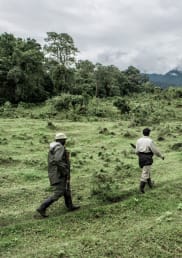A sense of hope: Understanding post-federal dynamics among marginalised communities in Nepal's Tarai region – Federalism in Nepal Vol. 2
This report finds that minority Madhesi Dalits, Muslims and Tharu share a sense of both optimism and scepticism regarding the emerging post-federal contexts in their specific locales.
Nepal’s transition to federalism – which materialised after more than a decade of political instability fuelled by many social movements and violent protests, and the devastating impact of the 2015 earthquake followed by the border blockade – has created a shared sense of optimism and hope for the people.
Many see the evolving federal system of governance as a genuine opportunity to address the long-standing grievances and marginalisation of various groups, regions and genders, and to strengthen good governance and state–citizen relations. However, the actual implementation of federalism, as the experiences of the first year indicate, is fraught with many barriers and challenges.
Nepal’s long history of centralised governance and the continuation of historically institutionalised structural forms of inequality and exclusion still pose challenges for making federalism work for the empowerment of marginalised people living in marginalised communities. Therefore, it is imperative to identify the potential subnational conflict drivers, and to draw evidence to demonstrate how marginalisation is evolving in the new context and understand the key factors driving it.
Research suggests that federalism has opened up new political spaces and opportunities for the minority groups and created a heightened public expectation. The minority groups under this study, Madhesi Dalits, Muslims and Tharu, share a sense of both optimism and scepticism regarding the emerging post-federal contexts in their specific locales.
Related publications
This is the second report in our series on federalism in Nepal produced as part of the Sundar Santa Nepal project. Find the full list of reports below.
- Democracy and peace in federal Nepal
- A sense of hope: Understanding post-federal dynamics among marginalised communities in Nepal’s Tarai region
- Deepening federalism: Post-federal analysis on marginalised communities in Nepal’s Tarai region
- Status and process of law-making in local governments: Reflections from two provinces
- “I can speak”: Navigating masculine spaces in federal Nepal
- Fiscal Federalism: An analysis of its initial implementation in Nepal




